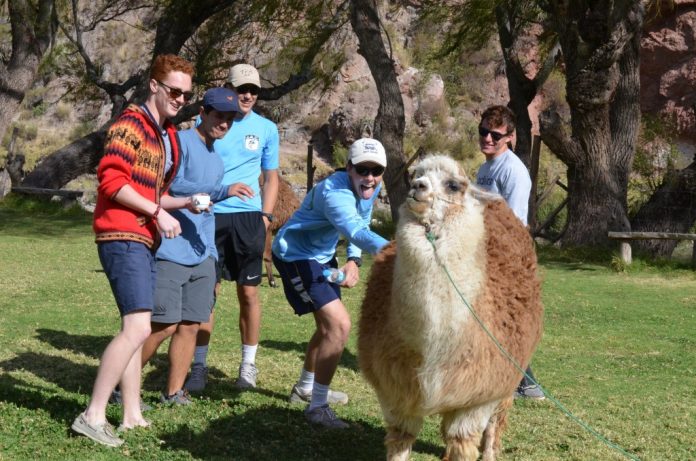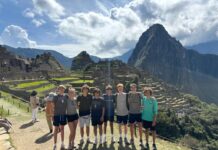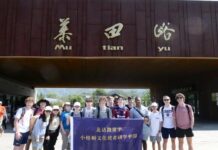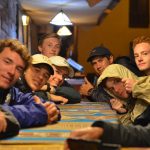 This past school year, Mr. Michael Reimer, the head of The Yearbook, inquired into a discontinued Jesuit Mission trip. It had been 8 years since Jesuit Dallas had visited Peru, and it would be the summer of 2014 that we would return.
This past school year, Mr. Michael Reimer, the head of The Yearbook, inquired into a discontinued Jesuit Mission trip. It had been 8 years since Jesuit Dallas had visited Peru, and it would be the summer of 2014 that we would return.
Thanks to the hard work and planning of Mr. Reimer, Mr. David Williams, and Mr. Richard Perry, who organized the trip and picked a team of Jesuit students, we survived 10 days in a foreign country with two gingers in the group. It’s ok though; one of them is Peruvian.
After some profound reflection, Mr. Reimer and Mr. David Williams selected 7 rising seniors as well as Mr. Paul McDaniel to attend the service/immersion trip. With the team set, the adventure was about to begin. Well, just about.
It took 2 1/2 long months of arduous waiting before embarking on our life changing experience. July 14, 2014 marked the beginning of the trip.
The trip was a moving experience not only because of the service aspects, but also because of the immersion experience. We were exposed to a culture and setting extremely foreign to us; we had to adapt to the change and embrace it. The service we did included helping kids in the classroom, playing with kids in daycare, and some manual labor clearing a field of rocks and weeds.
The biggest impact, however, was our exposure to a different environment, people, culture and language for 10 days. From walking around at 9,000 feet of elevation to ordering our food in Spanish, the trip required a bit of flexibility. It was a genuinely rewarding experience to walk in the shoes of a Peruvian during our time there. In a rather condensed reflection, I will try to summarize our adventures in Peru.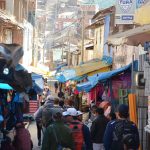
Arriving at the mostly deserted terminal, we waited for the entirety of the mission team to arrive. By 11:00 all were accounted for, completing the roster that included Austin Holtz, Kyle Hazelbaker, Cooper Brehm, Collin Stack, Connor Ehring, Chris Artigues, Zach Pendergraft, Mr. Williams, Mr. Reimer, and Mr. McDaniel, who was already one day ahead of us in Lima.
2 flights and 9 hours later, we arrived in the coastal city of Lima, Peru. Pendergraft had the first moving experience, sharing the observation that the “airport smelled like salty fish.”
It felt like a school morning all over again. 6 a.m alarm. No time for a shower. Just barely enough time for us to wake up, grab our bags, and head down to the lobby for a quick breakfast.
Our first destination for the trip was a small Jesuit parish located in the town of Andahualillas (ahnda-wall-e-yas). It was a small community with simple houses, cobblestone roads, families and children running around, and a beautiful church right in the center of the town. This town, while very simple, was amazing in its own right.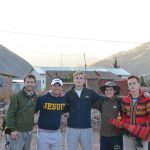
As a group, we ventured down from our rooms to the lower part of the town where the shops were located. Advice before I share our experiences: don’t give in to a price so easily when haggling. These deceptively innocent looking shop ladies were trained to double (sometimes triple) team you until agreement upon their terms.
On our first day at the parish we received a tour of the community from Sarah, a Jesuit volunteer stationed in Andahualillas as part of a two year service program. Sarah showed us the lunch room where kids from around the area come to get a balanced meal. “The kids,” she said, “need a balanced diet, so we try to provide that for them here.”
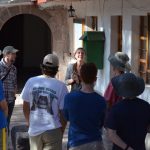 The food was fantastic, and I could return to Peru just for the meals in Andahualillas. Next, Sarah showed us some of the classrooms and computer labs where kids work on homework. Most youth in the area do not have personal internet access, a computer, or any electronics to assist them with their homework.
The food was fantastic, and I could return to Peru just for the meals in Andahualillas. Next, Sarah showed us some of the classrooms and computer labs where kids work on homework. Most youth in the area do not have personal internet access, a computer, or any electronics to assist them with their homework.
Sarah explained that as much of their work continuously becomes more dependent on computers, more kids have to come up to the parish to work on it. Sarah then explained the dental hygiene program they have; they demonstrate to the kids how to properly brush their teeth and teach them why brushing is so important.
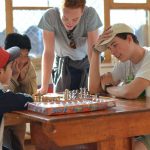 The kids have many things to keep them busy, ranging from reading in the library, playing in the game room, or playing soccer on the outside “court”, similar to a basketball court but with soccer goals.
The kids have many things to keep them busy, ranging from reading in the library, playing in the game room, or playing soccer on the outside “court”, similar to a basketball court but with soccer goals.
For the next few days we ate lunch with the kids, played games with them, played soccer, read them books, and just gave them new friends to spend time with. All was friendly and playful until our last night there. The Chileans would make sure to ruin our high spirits.
Our last full day there, a group of Chilean volunteers arrived to serve the parish just like we had been doing. During dinner later that night, after having seen us play soccer all day with the kids, they proposed a challenge to us. A Chile vs. USA soccer match.
We were tired. We were exhausted from our manual labor earlier in the day, which involved moving rocks and weeds out of a field. And we were full from dinner, but we reluctantly agreed.
These guys played soccer. Their goalie had legitimate goalie gloves, some players had matching jerseys, and they possessed an energy we couldn’t match after a long day of hiking and working. But we played; and we fought for our country.
We were victorious in our first game against them, but our fatigue would soon prevail to show us defeat. After a halftime break, we decided to play the next game to two goals. After they scored the first goal, we knew we were done. The Chileans stood victorious for the second game, and we took our defeat as an invitation to call it a night. It was like 10 p.m., way past my bed time.
The next few days were spent sightseeing and exploring Machu Picchu. Words can’t describe just how marvelous this wonder of the world really is. All I will say about Machu Picchu is that it is beautiful, and mind blowingly awing. If you ever visit, make sure to go to the Sun Gate and climb up the secret path from the cave.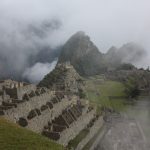
After touring and travel, our next stop was a Jesuit high school in Lima. We hope to establish an exchange program with this school, which seems promising for this next coming year. We were shown around the campus by Father Oscar, the president of the school. This place was unbelievable.
Their school has a zoo. A zoo. On campus. I’m grateful for our school doubling as a museum, but if we could have a couple leopards, bears and llamas that’d be pretty swell too. Brehm said “I would come back here to visit. Their campus is huge and amazing.”
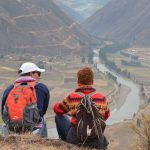 With a camps spanning far more than our 28 acres, the school had three soccer fields and a library containing books that date back to the 15th century. The entire school was stunning.
With a camps spanning far more than our 28 acres, the school had three soccer fields and a library containing books that date back to the 15th century. The entire school was stunning.
We spent the next day shadowing students, and had the opportunity to see more of the school and experience everyday school life in Peru. It was a rewarding experience that allowed us to experience Peruvian culture as well as tell them more about the United States.
The last mission of the trip would prove the most emotional and rewarding experience of the whole trip. Near the end of the 10 day journey, we volunteered at the Sisters of Charity Hospital in Lima, Peru. This is the hospital that Blessed Mother Theresa worked at before she went to Calcutta.
During our three-hour shift we washed clothes, visited patients, fed them lunch, and gave company to people that might not have much time left in their lives. These patients, we were told, were either dying and had nowhere to pass on with dignity, had one month to live, or suffered with serious physical or mental impairments.
The happiness these patients shared just because they had someone new to talk with, as well as the gratitude they had for each other’s company was touching . They didn’t have much, but these people showed me that you don’t need a lot to find happiness. Holtz shared that “this experience was influential. It will help me when I visit with patients at my senior service site at Baylor.”
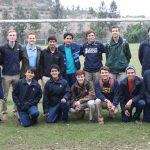 Our trip was coming to a close, and after one more travel and resting day we would be back in the United States. Back home. Back to our normal lives.
Our trip was coming to a close, and after one more travel and resting day we would be back in the United States. Back home. Back to our normal lives.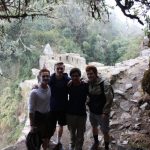
But we really won’t go back to our normal lives. The things we saw and the things we lived out in Peru will stick with us and will change how we live out our lives. We didn’t just change other peoples’ lives, we changed our own. Jesuit gave me and the rest of us an opportunity that won’t compare to anything else I’ll see or do in the future.
Big thanks to Mr. Reimer, Mr. Williams, and Mr. McDaniel for all their hard work and for putting up with us on this trip.


